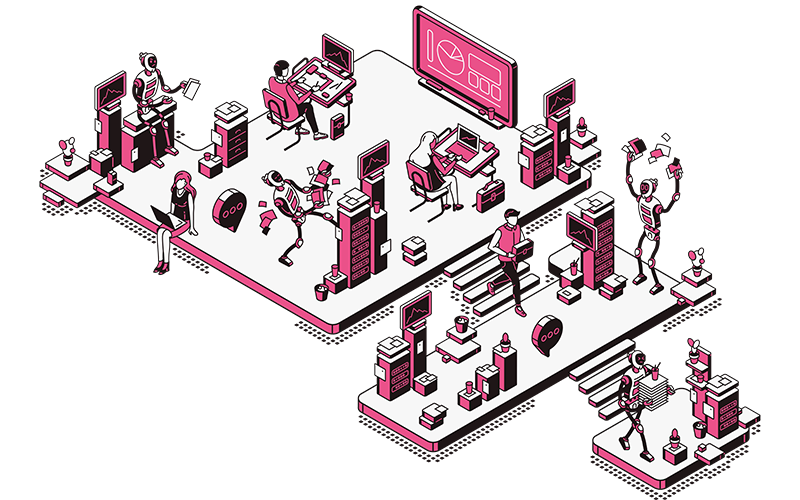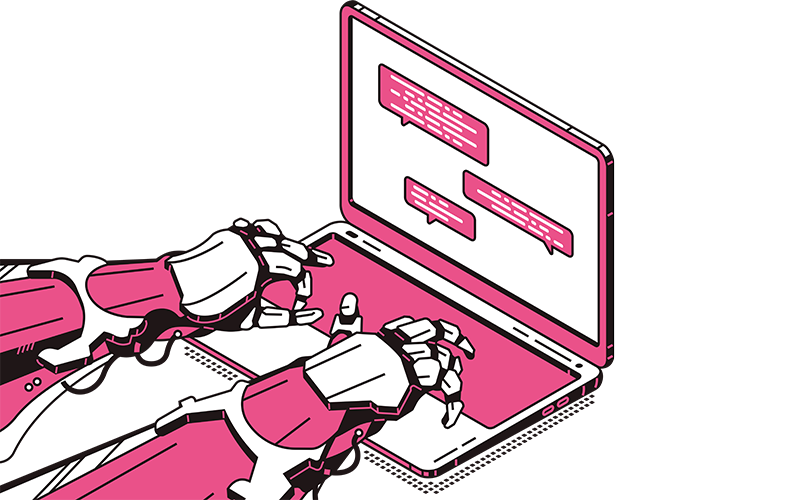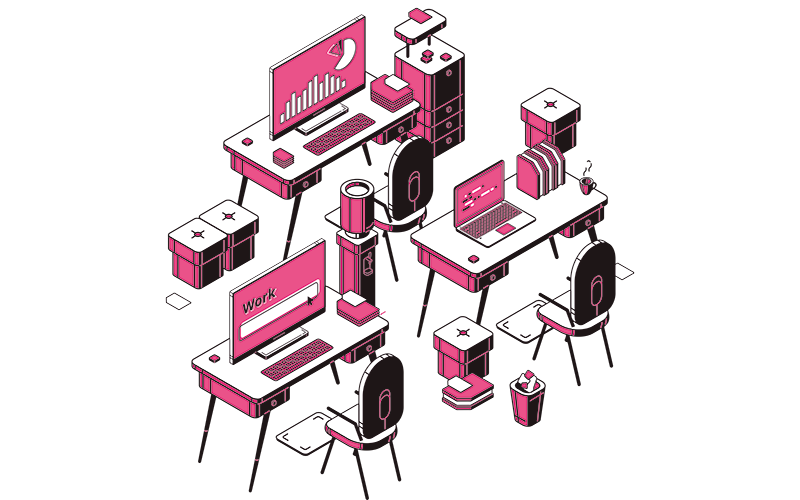Special Report - Technology 2021: Perspectives on the 'new normal'

The pandemic has changed how and where recruiters work, with an increased reliance on technology. Here are three viewpoints of recruitment tech’s ‘new normal’
The global recruitment consultancy
Bev White, CEO, Harvey Nash Group
How easy/difficult was it to adapt to home/remote working?
Although the severity of the situation at the outset of the crisis did come on with what seemed like surprising speed, we were perhaps thinking and planning around it earlier than most here in the UK.
The group’s international footprint proved its worth, as we have an extensive operation in Vietnam – so when the virus took hold in China, we began to take measures to bolster the Vietnamese business. Teams began to alternate between working in the office and working from home, and we addressed network and hardware issues given that many of our staff do their work on desktops rather than laptops.
The experience in Vietnam meant that we were soon live planning for the rest of the business, too. Our IT team performed some amazing work, upgrading our network capacity where needed and migrating systems to the cloud that weren’t already hosted there.
When lockdown began, we were ready in terms of systems and connectivity. Everyone began to work from home, and the transition felt relatively smooth. It has perhaps become more difficult as the pandemic has continued, as some people have begun to flag somewhat from the endless stream of video calls and online meetings – a common problem that all businesses are experiencing.
What are your biggest challenges?
From the start of the crisis, I made it a priority that as a business we should be there for our people, clients and candidates – communicating, updating, supporting and being visible. People really kept in touch with their clients and candidates, and it wasn’t long before there were some brilliant social activities going on over Teams or Zoom as well – quizzes, exercise sessions, cookery classes and more. More formally, we entered into a partnership with Uhubs, providing content for our people, clients, contractors and staff, and running sessions on multiple different topics from mental wellbeing to self-management. We also set up a website www.yourtomorrow.io which showcases some of the incredible and inspiring stories of people in the tech business who lost their position or contract due to the virus but then moved on and found a new role.”
How is technology helping you tackle these and what tech is proving most valuable? We have extensively used Hinterview to conduct and record first-stage interviews on behalf of our clients, as well as the more usual MS Teams and Zoom. We have also provided advice to our clients and candidates on how to ensure that virtual interviewing, from both sides of the screen, is as smooth and effective as possible.
How is technology helping you to preserve the human side of recruiting and what tips do you have for others?
We have recently used vTogether, a virtual platform for hosting internal meetings, and at the same time we have also worked hard to introduce a culture where anyone can simply ask ‘How are you?’. This is even more important in a virtual world, as meetings can often start and stop abruptly with little or no small talk about what is happening in our professional and personal lives. We are also implementing a new engagement platform called Hive HR, where everyone has the opportunity to feedback and tell us how they are feeling. Not only do we expect this to boost teamwork and engagement, but we would also hope that it works in parallel with our other initiatives to support the mental wellbeing of our staff.

The technology provider
Dan Kirkland, co-founder and director, TribePad
What is the recruiter’s new normal looking like?
There’s no simple one-size-fits-all answer, as different companies and different jobs will still require different processes. However, digitisation of end-to-end processes will feature. Much less paper is being exchanged during the recruitment process, which is a welcome change for most. Additionally, geography is no longer the boundary it was previously perceived to be. This is great for recruitment if your company plans to continue to support remote working. Your talent pool geography may now have increased from 30 miles radius of your office to around 200 countries (regulations allowing).
Covid-19 has clearly accelerated a trend to an increased use of video interviewing and tech such as AI in the screening process. What are the up and downsides of this?
For me, there are more upsides than downsides. These tools help automate manual processes and provide a consistent, accessible and more transparent and accountable recruitment process. Therefore, it should be fairer, more repeatable and more efficient. Two of the possible downsides recruiters need to look out for are a) how much they can remove the human element and b) some tools overclaim the use of AI and, worse still, provide no transparency of how fair that AI is. For example, some AI-enabled tools purport to reduce unconscious bias but have been programmed by white males and with small datasets. That’s not a good combination for tackling unconscious bias.
What tech are recruiters asking for during this difficult time?
Nearly every recruiter has been slingshot to a world where their entire recruitment process had to be digitised over the past year. This starts with having a robust ATS [applicant tracking system] and CRM [client/candidate relationship management system] to help with job advertising and pipelining candidates through the process. In the absence of face-to-face interviews, online assessing tools like SHL, PredictiveHire, SpeakNow and their ilk have been key to helping recruiters identify the best candidates. It would be impossible to imagine recruitment without video-interviewing tools in the last year. Later in the process recruiters have turned to e-signature platforms to ensure employment contracts can still be signed in a timely, remote fashion. Even later in the workflow, many firms have digitised their onboarding process, something that has been on their agenda for years, but the pandemic has forced the move.
Do you think the pandemic will change the use of technology in recruitment forever?
No doubt about it. Previously, some companies and recruiters were ‘video sceptics’. And some companies hadn’t digitised their contracts or onboarding process. Now these tools and processes have been thrust upon companies and recruiters, and everyone has realised the benefits and efficiencies that they bring. In fact, many companies have identified a significant decrease in time-to-hire (some quoting more than 40+% decreases) since bringing more of their process online. Assessments, interviews, signing contracts, reference checking and onboarding is quicker. Why would you want to go back to old processes?
However, among the excitement of decreased time-to-hire, there will no doubt be another recalibration. Many companies and recruiters will be desperate to reintroduce more direct human touch points back into the recruitment process. Second and subsequent stage interviews are likely to see a significant shift back to face-to-face. And many recruiters have implemented a ‘forced tactical’ process rather than an optimal one for a new world, so I definitely see a refinement of processes, especially onboarding once more people can get back to the office.

The in-house resourcing head
Ben Gledhill, head of resourcing, Thames Water
How easy/difficult was it to revert to homeworking?
Personally, very difficult. I am very much a people person, and I feed off the energy of others. However, being pragmatic I am still in employment doing a job that I love. Many are in far worse situations, so you have to be appreciative.
What are your biggest challenges?
The pandemic has thrown up many challenges that we had weeks to fix, not months or years. My main concern is the wellbeing of my team and wider colleagues. We all have had both personal and professional problems to overcome so I have ensured that their health – both mental and physical – comes first. From a wider resourcing perspective, we have had to adapt to operating a function from behind Microsoft Teams, which itself brings huge challenges when it comes to building and maintaining relationships with hiring managers and leaders. Finally, a recruiter’s greatest attribute – empathy – has had to be used in tenfold due to the current candidate market. Candidate experience is more important than ever, not just from an employer branding perspective but from a simple humanistic level.
How is technology helping you tackle these and what tech is proving most valuable?
Well, trust me to lead a technology implementation programme through Covid. We went live in February 2021 with a new applicant tracking system, onboarding platform and FAQ chatbot to improve both the candidate, new starter and hiring manager experience. In this new normal, more than ever, the resourcing function wants to please, especially when it comes to creating an experience for new starters that really sets them up for success on day one, which in most cases will be a virtually-based role working from home.
How is technology helping you to preserve the human side of recruiting and what tips do you have for others?
Technology is only as good as the humans that use it and the reasons why they use it. I think we need to consider that Teams/Zoom actually might be overkill. Yes, we need to be social and keep in contact, however, being in front of a camera six or seven hours a day is very demanding physically. People need downtime. From personal experience, give yourself a break. It’s been a tough time and many things in life will still be challenging for a time to come. Don’t be afraid to sometimes admit defeat, close the laptop and return another day.
Image credit | Shutterstock
